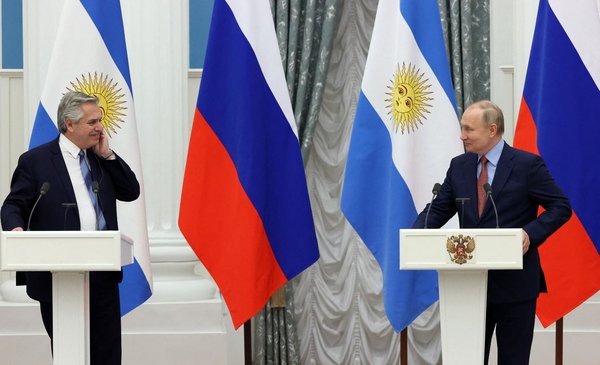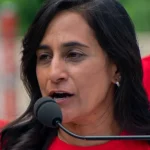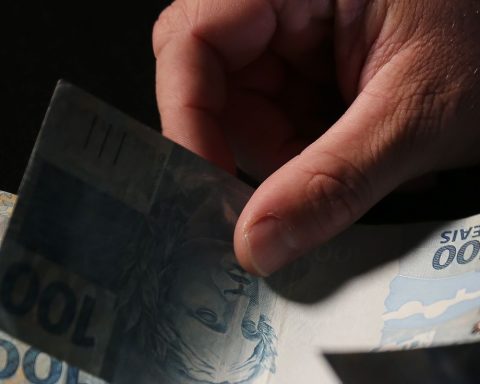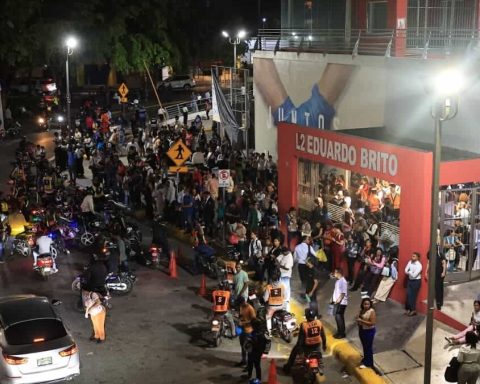The outbreak of the war in Ukraine made Argentina go through all the emotional phases: From hope over the boom in soybean prices to concern over the spike in gas prices and, finally, alarm over the possible failure of negotiations with the International Monetary Fund.
The soybean complex represents 30% of Argentine exports and is the major provider of foreign exchange for the punished coffers of the Central Bank, as well as fiscal resources through the controversial export withholdings.
If the entire agricultural export is considered —including raw materials and agro-industrial production— it represents two thirds of the US$ 78,000 million that Argentina sold last year.
Therefore, the first reaction to the new international scenario was to think that, as has happened other times in history, a war in the northern hemisphere could bring a “Keynesian boost” to the local economy.
Soybean trading at US$ 630, a value higher than the peaks of 2008 and 2013, led officials and economists to revise upwards the trade surplus forecasts for this year.
However, the euphoria quickly wore off. In the first place, because the Argentine agricultural campaign has been affected by the climatic phenomenon of La Niña, which is causing yields to fall by more than 20% in the areas most affected by the drought. In fact, the Rosario Stock Exchange forecasts that the soybean campaign would leave 39 million tons -44 million were originally expected- while a corn harvest of 48 million is projected -it was initially expected to reach 55 million-.
Translated into silver, this implies, according to most economists, a cut of US$ 5,000 million in agricultural exports.. A figure that cannot be offset by the rise in international market prices.
In addition, market analysts believe that the current price of soybeans, wheat and corn will not be sustained for long because they respond to a typical panic reaction to the invasion, but that sooner rather than later they will resettle at an equilibrium level, even when armed hostilities continue to escalate. The argument is that the main factor that explains the price of commodities is Asian demand, and that the “plus” caused by the Russian invasion should moderate.
But, to make matters worse, what is becoming clear is that there will not be a reflection of a massive sale of soybeans by Argentine producers. Far from rushing to take advantage of the high price opportunity, farmers are maintaining their traditional cautious attitude, with gradual sales.
Experts affirm that, even with these international prices, the Argentine farm business has decreasing profit margins, as a result of the exchange rate delay and the heavy withholdings on exports. This discourages immediate sale and, on the contrary, leads producers to store their grains in silobags, waiting for a better moment.
The energy threat
In contrast to the situation of agricultural raw materials, what is happening in the fuel category is causing alarm. The Argentine energy matrix is highly dependent on gas, and the decline in production makes it necessary to import larger volumes each year.
The rate of growth of these purchases was already at an impressive 120% per year before the crisis in Ukraine, and with the doubling of the price in the global market – added to the production difficulties in Bolivia – everything indicates that energy will be transformed in an important outlet for dollars.
Russia is responsible for 15% of world production, and the impact on the market is already being seen.
For Argentina, this implies that fuel imports will reach at least US$ 4.5 billion, which implies more than doubling last year’s record.
It is in this framework that the Argentine government is playing a race against the clock to try to get the most out of Vaca Muerta gas, which requires the completion of the new “Néstor Kirchner” gas pipeline, which is just in its initial phase. Officials affirm that this work will allow the country to save US$ 2,500 million a year by importing gas.
But of course, if everything went as planned, the results would begin to be felt next year, which for a country in financial crisis like Argentina is equivalent to talking about the long term.
The agreement with the IMF, in therapy
With higher costs for expensive energy and little hope of increasing dollar income from soybean exports, Argentina’s financial situation is becoming more complicated than when negotiations with the Monetary Fund began.
To such an extent, that in the political sphere there is beginning to be fear of a stalemate in the negotiations. The draft agreement includes a commitment to reduce the primary fiscal deficit to 2.5% of GDP, something that would be achieved, above all, by a cut in energy subsidies.
But this issue has unleashed a tough internal fight in the government coalition, given that Kirchnerism does not want a rise in electricity and gas rates. Cristina Kirchner is convinced that the tariff increase was what sealed the electoral defeat of Mauricio Macri and she does not want Peronism to repeat the same fate this time in the 2023 election.
The parties were already far apart before the Russo-Ukrainian conflict broke out. While the IMF asked for an increase of no less than 60% in tariffs, the Argentine government wants to adjust only 20%, except for a stronger increase for a minority of the population considered to have high incomes.
Now, with energy prices skyrocketing worldwide, even if the government agreed to the IMF’s request, it would be difficult for the amount earmarked for subsidies to go down.
As, in addition, the new scenario calls into question the official forecasts of growth of the economy by 4%, there is also uncertainty about whether the expected tax collection will be available.
JUAN MABROMATA / AFP
Minister Guzman has an arduous task ahead of him after the agreement with the IMF.
In other words, there is a fear that the IMF deal has become unenforceable even before it is implemented.
This intensifies the expectation for the speech that Alberto Fernández will give when opening the sessions of Congress on March 1. There are those in the government coalition who are fighting for an aggressive tax pressure against the wealthy sectors of society, and who promote a tax on the holding of dollars and assets outside the country that are not declared.
But that would clash head-on with the position of the opposition, which now has a majority in both chambers, and on whose vote the president depends to approve the agreement with the Fund.
The worst sentence, with the worst timing
“We have to see how Argentina somehow becomes a gateway to Latin America for Russia to enter Latin America in a more determined way.”
That phrase, pronounced by President Alberto Fernández at the beginning of the month before Vladimir Putin in the Kremlin, is considered, according to the criteria of Argentine analysts and diplomats, the most unfortunate in the history of Argentine foreign policy.
Already the fact that Fernández went on an international tour that included Moscow and Beijing as main points had been widely criticized for its lousy timing, just when the country was negotiating the final phase of the agreement with the IMF.
Argentina was asking the agency for preferential treatment, with rate cuts and a soft landing on the fiscal front, which meant that the US government was influencing the Fund’s tough staff of economists.
And at that point the risk of a war in Ukraine was already considered very high. It was not the best time for the Argentine president to make explicit his desire to reduce his “dependence” on the IMF and the US government and to intensify ties with Washington’s other two rival superpowers.
That is why the US State Department leaked to the press that there was strong discomfort with Fernández, something that many interpreted as the possibility that the agreement to refinance the debt would end up skidding.
No one was surprised, in this context, that Argentine sovereign bonds plummeted to such an extent that their theoretical yield reached 28%, more than triple what Ukrainian bonds yielded, on the verge of going to war with a superpower. In fact, the Argentine country risk crossed 1,800 points -a typical mark of a country that has already entered into default- while that of Ukraine was around 700 until it shot up just when the Russian invasion took place.
The truth is that the new international scenario comes at the worst possible time for Argentina, which is racing against the clock to reach an agreement with the IMF, given that on March 22 a quota of US$ 3.2 billion with the Fund expires, which the country does not can pay without a prior reinforcement of the reserves of the Central Bank.
In recent days, the Foreign Ministry has shown a somewhat ambiguous position, which generates criticism from both the opposition and from Kirchnerism. The first statement barely stated that Argentina opposes the use of violence, but did not mention the name of Russia and avoided the term “invasion”. Then came another who did ask for the cessation of the Russian intervention, and then another who adhered to the call of Pope Francis.
But the Ukrainian embassy in Buenos Aires summoned the press to communicate its disappointment at the insufficiently clear tone of the Argentine statements, and put Uruguay as an example of other countries explicitly aligned with the Ukrainian cause.

















